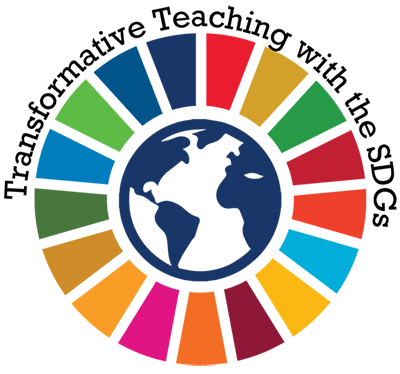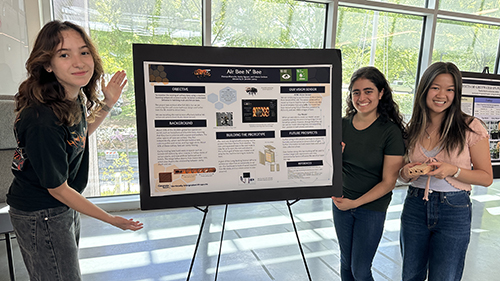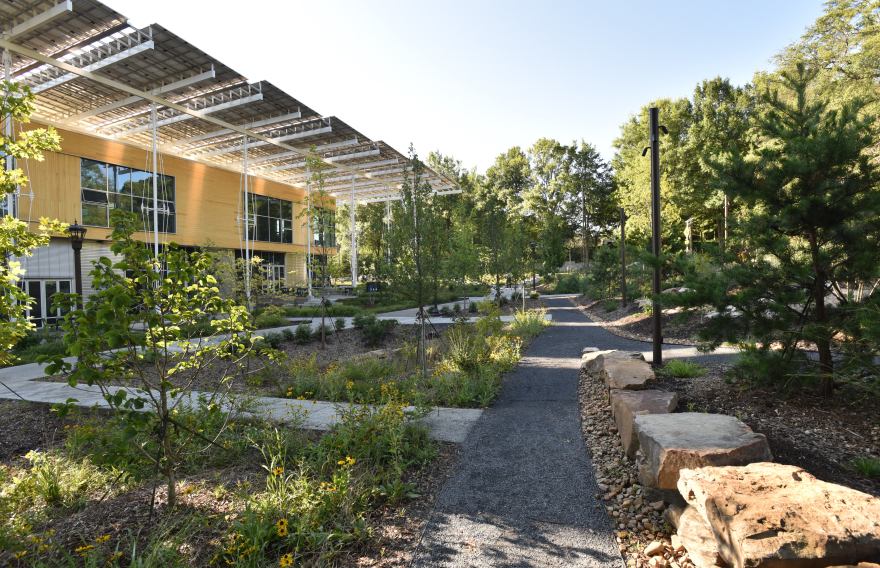Sustainability Education Research
The Brook Byers Institute for Sustainable Systems recognizes the intimate connection between research and education and works collaboratively through our faculty and partnerships to advance interdisciplinary education at Georgia Tech and beyond. This effort is led by our Associate Director for Interdisciplinary Education, who also serves as the education co-chair for implementation of the Sustainability Next Plan and coordinator of the campus-wide Sustainability Curriculum and Education Committee (formerly USEC).
Undergraduate Sustainability Education Innovation Grants, supported by Sustainability Next, are working to transform sustainability education through strategic investment in course and curriculum design. Award winners and others interested in joining a community of investigators researching the impacts of education for sustainability can contact jennifer.leavey@cos.gatech.edu to participate.
Research Highlights
Georgia Tech Community of Practice on Transformative Teaching with the SDGs
Launched in 2023 to support recipients of Undergraduate Sustainability Education Innovation (USEI) awards, this Community of Practice (CoP) is associated with Georgia Tech’s Undergraduate Sustainability Education Committee (USEC) and the Center for Teaching and Learning. The fall 2024 CoP of about 40 instructors from all six colleges meets bi-weekly for an hour. Many participants are recipients of USEI awards but the group is open to all Georgia Tech instructors interested in bringing sustainability and the United Nations Sustainable Development Goals (SDGs) into their teaching. In each CoP session, faculty share teaching and learning insights with their peers and we discuss one specific element of education for sustainability, including teaching with the “Wicked Problems” framework and Key Competencies for Sustainability, getting started with education research, working with community partners, Problem-Based Learning (PBL) and case-based teaching, and cross-disciplinary teaching.
Research Centers and Institutes
Center for Sustainable Communities Research and Education
The Center for Sustainable Communities Research and Education incubates and supports community-engaged sustainability projects, courses, and professional development programs. Its curricular and co-curricular programs welcome students from all majors and reflect a commitment to an interdisciplinary, experiential approach to sustainability education and the U.N. Sustainable Development Goals. Our educational programs and projects are fueled by collaborations with on-campus and community-based partners in areas such as climate ethics and a just energy transition, in which GT students are poised to become change-makers.
Georgia Tech Sustainability Curriculum and Education Committee (formerly USEC)
The Sustainability Curriculum and Education Committee is comprised of school and program representatives from across the institute and is charged with developing a comprehensive sustainability curriculum and implementation strategy, including cross- and discipline-appropriate approaches in close collaboration with the respective units. The committee directs the allocation of Institute Strategic Plan (ISP) funds to support curriculum development and to document and share sustainability and SDG education successes. This work is carried out in alignment with other ISP initiatives such as Transformative Teaching and Learning.
Living Campus Resources
With more than 400 acres, 15,000 trees, 230 buildings, and 30,000 visitors daily, Infrastructure & Sustainability welcomes creative partnerships with our campus colleagues. We are eager for the Georgia Tech community to engage with us in data research, pilot projects, research grants, capstone projects, and more.
By merging academics and research with campus spaces, we have a unique opportunity to form partnerships and provide real-world educational experiences. Leveraging our environment as a living campus is an integral component of the strategic plans, goals, and initiatives that guide the direction of the Institute.







